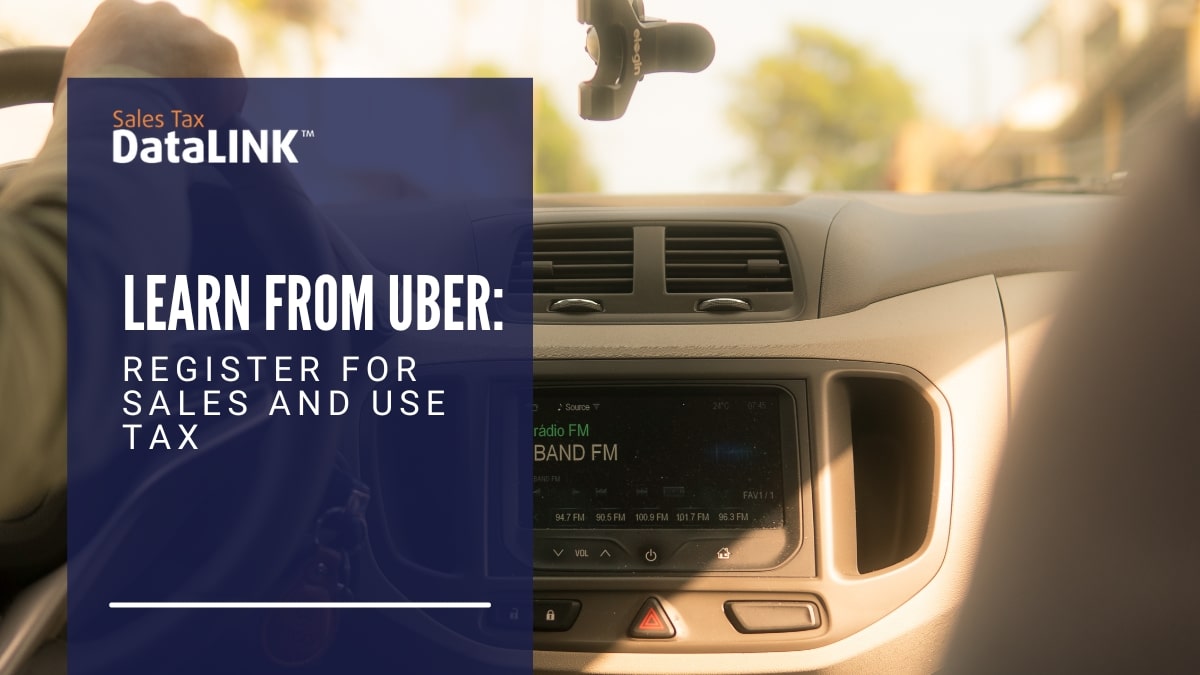Uber and Lyft are both under fire in Rhode Island after not registering for sales and use tax. Both companies have been charging sales tax for their services but aren’t registered, let alone remitting sales tax to the state. Uber has spoken with reporters about the issue, stating that because of “ambiguities” in the law they’ve been temporarily holding on to sales tax with the intention to remit at some point in the future. Lyft has yet to comment.
Collecting sales tax without registration or remittance usually spells trouble. In fact, can be considered a felony. If your business does transactions of any kind, be sure that your business has looked into sales and use tax liabilities and is complying with the law, even if sales tax laws are confusing or difficult to apply.
Don’t Let Confusing Sales Tax Rules Stop Compliance
There’s a high potential that Uber and Lyft will both be audited by the State of Rhode Island for unpaid sales taxes, especially since both services are already under a lot of fire. The one thing Uber did right in this situation is to consult with Revenue officials to best determine how to handle sales tax for part of their services. When rules are ambiguous, your business should always approach the state’s officials to get an opinion. However, it’s not an excuse to not comply with sales tax laws.
Auditors don’t care if you think sales tax laws are confusing or ambiguous either—all they care about is that the state is getting the right amount of
sales tax in a timely fashion for your business transactions.
Keep in mind that if your business doesn’t have sales tax liabilities, there’s the potential you have to use tax liabilities and still need to register. If your business buys products online from a retailer that doesn’t charge sales tax, for instance, you need to remit use tax for those purchases.
What To Do When Sales Tax Compliance is Too Confusing
If you’ve done your best to understand how to comply with sales tax laws but you’re still unclear on how your business needs to handle sales tax, here are some steps you can take to get answers.
- Bring in outside help, like sales tax outsourcing. They’re specialists in sales tax and can help your business comply with confusing sales tax laws. In all likelihood, they’ve done it before for a business with a similar situation and know the ropes.
- Contact your state authorities for an official opinion. Often times sales tax offices will provide guidance on confusing or unique sales tax problems. If you’re in doubt, contact them. After all, they want you to comply with laws and remit so it’s in their best interest to help you do that.
- Do the best you can. While there’s the potential you’ll get audited, if you don’t have the time or resources to dedicate to compliance, you can bite the bullet and try to make it work. Just be aware that you might get it wrong. Half wrong is often better than all wrong in sales tax.
Sales tax can be quite difficult in certain industries or when your business is in the business of challenging the status quo, like Uber and Lyft. But it’s no excuse for not doing sales tax right.




